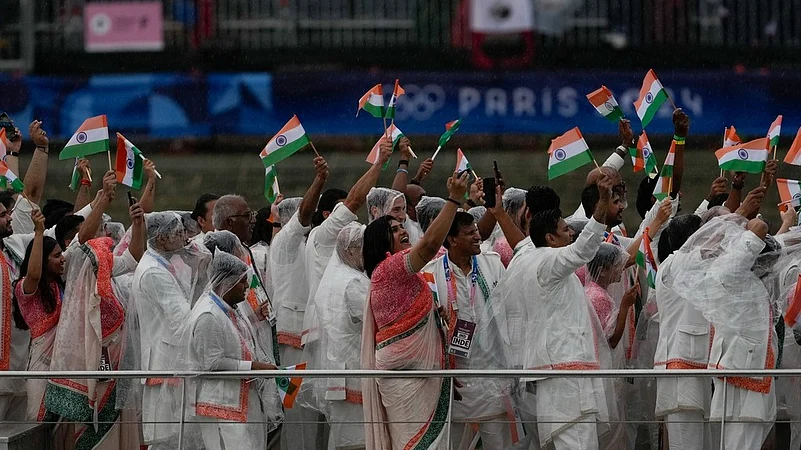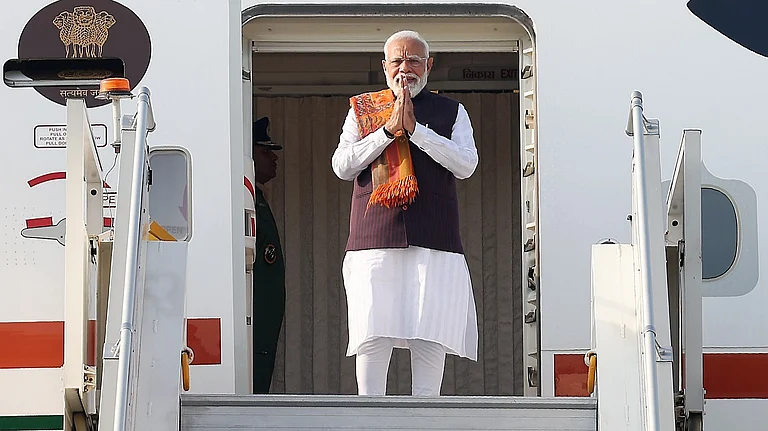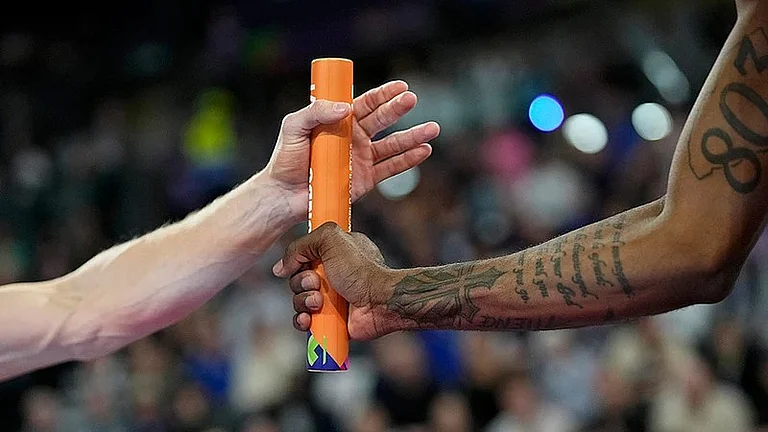The ongoing Paris Olympics' conduct is being criticized on several grounds, but sustainability is not one of them. At least not yet. (Medal Table | Schedule & Results | Full Coverage)
Various measures have been taken to try and make this edition the greenest in recent history, one of which is the use of existing venues for majority of the events. This was possible because of the rich, diverse sporting infrastructure in and around the French capital. But does that hold for any Indian city currently?
The Narendra Modi-led Indian government has been vocal about its intent to host the 2036 Olympics for quite a while, and has not shifted its stance after being re-elected to power in June 2024. Before the Olympics-bound Indian athletes set off for Paris, Modi urged them to share pointers on the arrangements at the 2024 Games.
“I won’t ask you to do anything in the middle of your events but when you are free, I would urge you to observe the arrangements. Your inputs will help our bid for 2036. We will have an understanding on how to make sure that we are better prepared,” the Prime Minister said during the interaction.
Interest and intent notwithstanding, the road to India's candidature for hosting its first-ever Olympics is arduous, and the result will not be known before the International Olympic Committee's (IOC) 2025 elections. As an idea itself, however, hosting the quadrennial multi-sport extravaganza is not necessarily in tune with the country's socio-economic realities.
Sure, 12 years is a long time, and smart planning can do wonders. The question is more about whether the humongous cost of hosting an Olympic Games edition is worth inflicting on the nation.
There are enough cautionary tales since the turn of the century, including the previous two editions. Final estimates peg the spending on Rio 2016 at around 13.2 billion US dollars, which is nearly 51 per cent more than the allocated budget of 8.8 billion dollars.
Tokyo 2020 organizers said the Games' Covid-induced postponement alone cost Japan 2.8 billion dollars, two-thirds of which was paid with public funding. On top of that, a massive bribery scandal and allegations of bid-rigging tainted the edition.
A term used commonly in the aftermath of Olympic Games is 'white elephants' - expensive venues lying empty or underutilized post completion of an edition. Sydney’s Olympic Stadium, for instance, runs up a 30 million dollars annual bill for operation, while Rio's 20-million-dollar golf course was barren months after the 2016 Summer Games.
India has had its own brush with the aforementioned aspects, while hosting the Commonwealth Games (CWG) in 2010 and the Asian Games in 1982 and 1951 - all three in New Delhi. Large-scale corruption aside, the 2010 CWG as well as 1982 Asiad gave the national capital an infrastructure boost in terms of modern stadiums and better roads, but the magnitude of both was incomparable to the Olympics.
By all indications thus far, Ahmedabad seems like the front-runner city in India's bid for the 2036 Olympics. If the government does indeed go ahead with Ahmedabad as the chosen host, most of the necessary infrastructure will either have to be built or redeveloped, considering there are not many existing venues. All of this entails huge expenditure that the Centre must be ready for.
The preparations already seem to be well underway. Earlier this year, Gujarat’s BJP government, led by chief minister Bhupendra Patel, put up an exhibition describing the master plan to build state-of-the-art facilities at Sardar Vallabhbhai Patel Sports Enclave in Ahmedabad. The cost? INR 6,000 crore.
Furthermore, six stadiums are reportedly being constructed in the sports enclave with an aggregate seating capacity of 80,000 spectators. Apart from that, the Narendra Modi Stadium at Motera is being touted as the potential venue for the opening ceremony. Hailed as the world’s largest cricket stadium, it can seat more than one lakh people.
As a veritable dress rehearsal for the 2036 Games, the government is also planning to host the 2029 Youth Olympics in Ahmedabad-Gandhinagar.
A key question that must be asked here is regarding the true motive of this bid. Is it to foster sporting culture in the country, or to leverage national pride that borders on jingoism? The latter has time and again served as a handy political tool for parties, and ignores the best interests of the populace.
Congress leader Karti Chidambaram has spoken out against the government's desire to host the Olympics. Chidambaram reacted to IOC member Nita Ambani's statement at the opening of India House in Paris, where she talked about the “shared dream to bring the Olympics to India”.
"Hosting the @olympics will be a colossal disaster for us as a country. We will be forced to build stadia which will be seldom used and the financial burden will drive us into a huge debt. It’s better to focus on supporting our sportspersons & give them the resources to train, travel & compete. Let’s make champions from India to start with," Chidambaram wrote on social media platform X (formerly Twitter).
Views and counter views will abound on the matter, but the practical experience of host cities is far more telling. Any bid made should ideally consider the post facto response of host cities.
Case in point being London’s Olympics minister Tessa Jowell, who had remarked amid a slump in the British economy, “Had we known what we know now, would we have bid for the Olympics? Almost certainly not.”





























